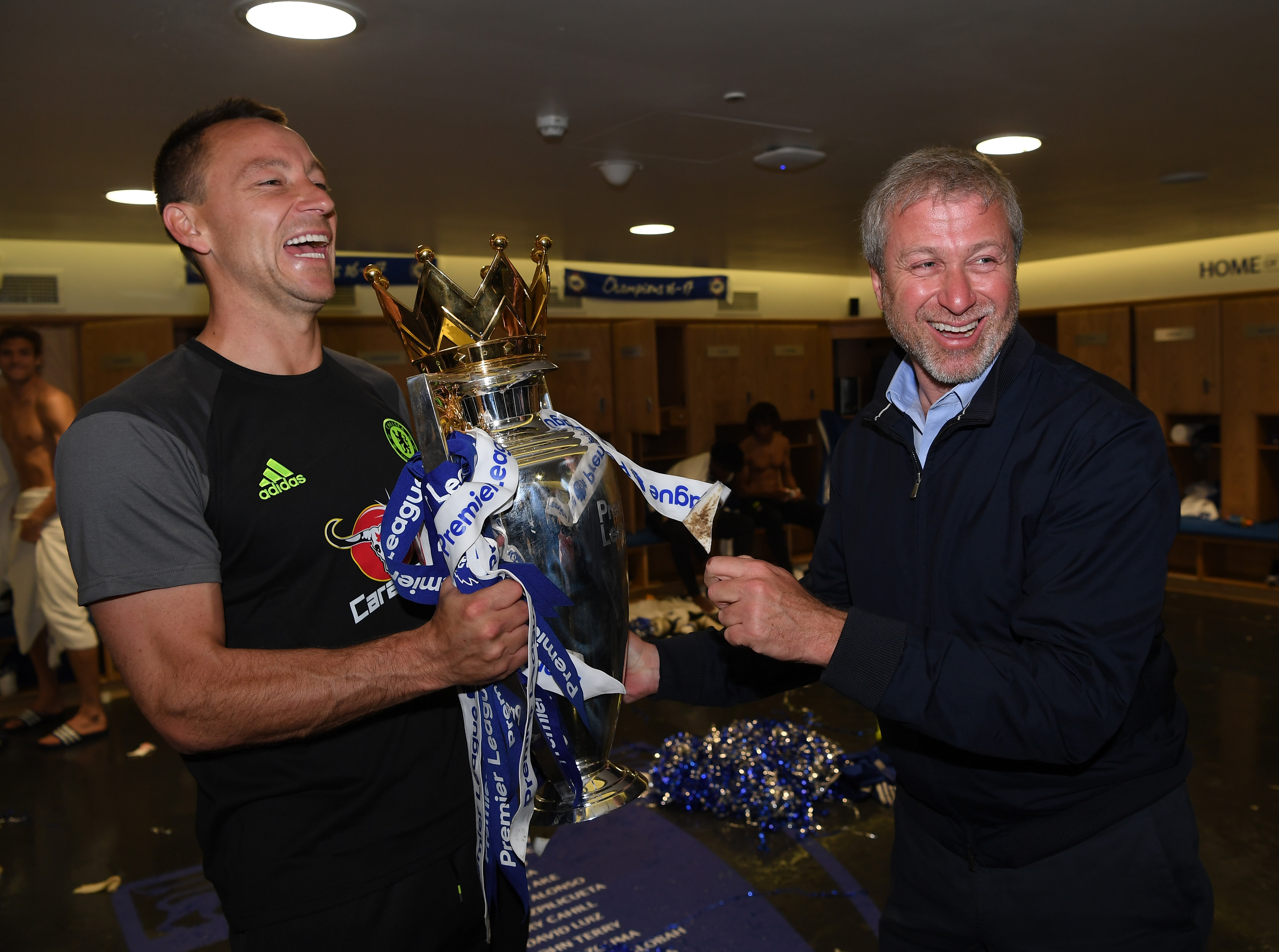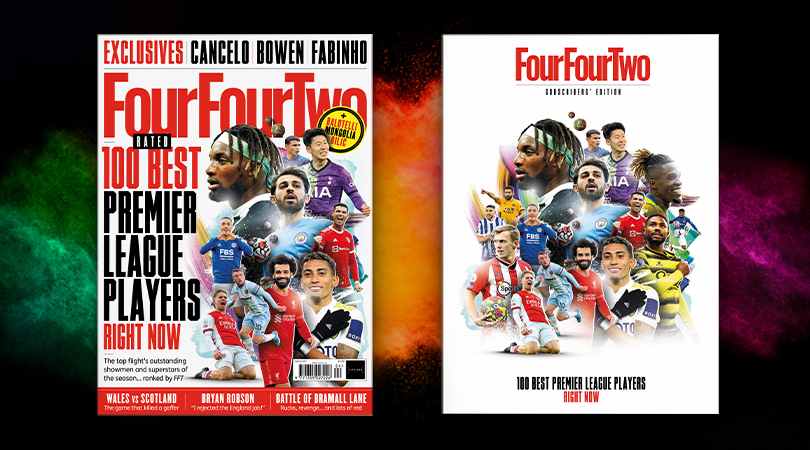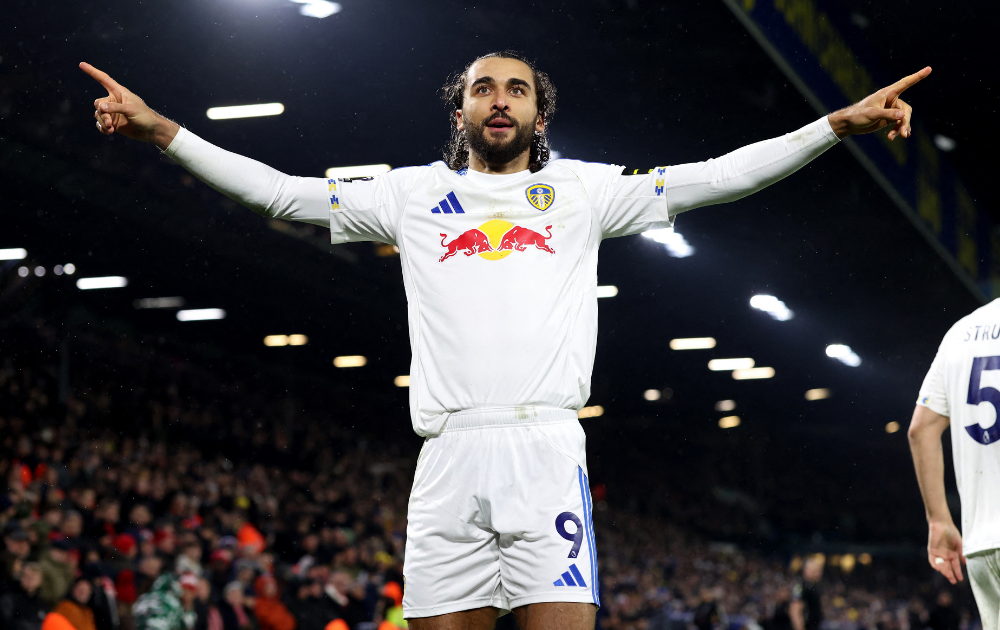How Roman Abramovich's billions bankrolled Chelsea into the big time – and supercharged the Premier League's financial superiority
Roman Abramovich's announcement that he is looking to sell Chelsea signals the end of an era – not just for the Blues, but for all of English football

The best features, fun and footballing quizzes, straight to your inbox every week.
You are now subscribed
Your newsletter sign-up was successful
Want to add more newsletters?
Join the club
Get full access to premium articles, exclusive features and a growing list of member rewards.
On the day that changed the Premier League forever, four mystery men clambered into Graeme Souness’ car just outside Manchester Airport.
Souness was a top-flight manager at the time, but on this occasion he was merely a chauffeur. Superagent Pini Zahavi had asked a favour: pick up some clients from the airport, and then drive them to Old Trafford to watch the Champions League fixture between Manchester United and Real Madrid.
“I tried to make small talk, but the guy next to me didn’t know who I was,” Souness recalled of it. “I got this distinct vibe of, ‘You just get on with the driving’.”
The Blackburn manager didn’t know it at the time, but that man was Roman Abramovich. Manchester United won 4-3 that evening in April 2003, but Ronaldo’s hat-trick sent Real Madrid through. So enthralled was the Russian by that occasion, he turned to advisor Avram Grant and said, “I want to buy a team.”
Abramovich soon visited Tottenham Hotspur, but was unimpressed with White Hart Lane’s surroundings. “This is worse than Omsk,” he reportedly said, referencing the bleak Siberian city where he had an oil refinery. His football excursions remained a secret, until a succinct statement that caught English football on the hop on July 2. He had bought Chelsea from Ken Bates for £140 million.
NEWS Roman Abramovich confirms plans to sell Chelsea after 19 years in charge
Along with the likes of Alan Sugar and Doug Ellis, Blues boss Bates had epitomised the most high-profile owners of the 1990s: blunt, brash and British. But things were about to change, in a way that would define the decade.
The best features, fun and footballing quizzes, straight to your inbox every week.
If the ’90s symbolised the rebirth of football, after the dark 1980s, then the noughties was the decade when finances boomed and the Premier League asserted its dominance as the most lucrative league in the world. No longer did Serie A reign, outmuscled financially not just by a resurgent Real Madrid and Barcelona, but by the television money that was powering English football.
A huge success since its inception in 1992, the Premier League’s maiden domestic TV deal had been worth £60m per year. By the start of the noughties it had reached £170m, as Sky’s blanket coverage dominated the market; NTL bought a portion of the rights in 2001 but then withdrew, handing them over to Sky spin-off channel Premiership Plus.
With the next must-watch match only ever a few hours away, the satellite giants’ hype machine went into overdrive – as lampooned by a TV sketch in That Mitchell and Webb Look, epitomising football coverage in the decade. “The giants of Charlton play host to the titans of Ipswich, making them both seem normal sized,” declared Richard Keys – er, sorry, David Mitchell. “Thousands and thousands of hours of football, each more climactic than the last! It is impossible to keep track of all the football, but your best chance is here.”
By 2007 Setanta had joined the party, as the Premier League’s domestic deal reached an astonishing £567m per year – a mere 65 per cent rise on the last contract. Overseas rights surged from £25m to £217m per year.
With an ever-increasing band of the world’s leading players, the league had become more glamorous and billionaires from around the globe wanted a piece. Over the course of the decade, English football turned into an arms race where only the richest could compete.
Clubs who tried to keep up without the right financial clout were often prone to disaster: Champions League semi-finalists in 2000/01, Leeds United ended the noughties in League One, crippled by the vast sums splashed on signings and Peter Ridsdale’s goldfish bowl.
Until Abramovich weighed in, Manchester United were England’s wealthiest club: they twice broke the British transfer record for Juan Sebastian Veron and Rio Ferdinand, and won three titles at the beginning of the noughties. Only Invincibles-era Arsenal could maintain the pace, but then Claudio Ranieri and Jose Mourinho harnessed Chelsea’s financial power – the west Londoners spent £100m in each of Abramovich’s first two summers – and the game had changed.
United were soon in overseas hands as well: Malcolm Glazer became majority shareholder in 2005, and his huge unpopularity sparked the formation of FC United of Manchester that summer. Then it was Liverpool, bought out by George Gillett and Tom Hicks in 2007 – that went well. The same year, Thaksin Shinawatra took control of Manchester City, before Sheikh Mansour muscled in. Even Abramovich wasn’t top dog any more.
As transfer fees grew ever-more dizzying and the offer of a £55,000-a-week salary was now so pathetic that players almost crashed their cars in horror, deadline day transformed into a box-office hit. Step forward an increasingly yellow Jim White, excitedly trying to ascertain if that shadow behind a curtain actually was Dimitar Berbatov, whether Robinho genuinely realised he was signing for Manchester City, and how on earth Benjani had managed to fall asleep at an airport.
It was a far cry from the start of the decade, a quainter time when football managers – well, Steve Bruce specifically – penned novels with names as varied as Defender! and Sweeper!, the latter featuring an abduction by an Israeli Nazi hunter whose favourite player was Celtic midfielder Eyal Berkovic.
As the Premier League continued to become richer and richer, its stranglehold on Europe’s top competitions grew, too. Sixth in the UEFA rankings in 1999 – behind Serie A, La Liga, the Bundesliga, Ligue 1 and even the Eredivisie – England’s top flight was number one by 2008.
That was also the second consecutive year in which three of the four Champions League semi-finalists were from the Premier League. English football had six finalists between 2005 and 2009, having sent one team to Europe’s showpiece in the previous 20 years.
Abramovich would have to wait a bit longer to lift the Champions League trophy. In 2008, Chelsea were beaten on penalties in Moscow by Manchester United and a certain Cristiano Ronaldo, who within months would claim his first Ballon d’Or. In the final year of the decade, United were beaten by Barcelona and Lionel Messi… who within months would also claim his first Ballon d’Or.
The next decade had not yet begun, but its tone had just been set.
This article first appeared in the Summer 2020 issue of FourFourTwo. Subscribe to FourFourTwo today and save over a third on shop price
ALSO READ
INTERVIEW James Milner's Perfect XI: "Gerrard was the best all-round footballer I’ve ever played with"

Chris joined FourFourTwo in 2015 and has reported from more than 20 countries, in places as varied as Ivory Coast and the Arctic Circle. He's interviewed Pele, Zlatan and Santa Claus (it's a long story), as well as covering the World Cup, AFCON and the Clasico. He previously spent 10 years as a newspaper journalist, and completed the 92 in 2017.
 Join The Club
Join The Club











